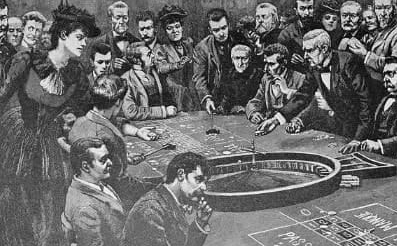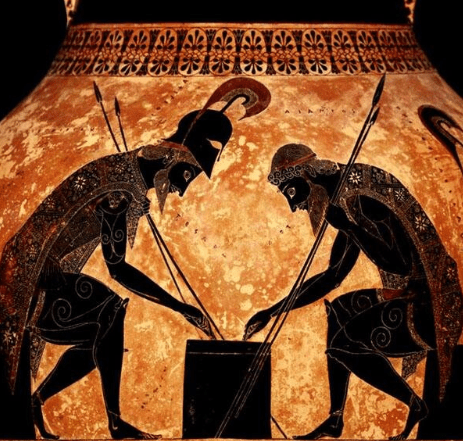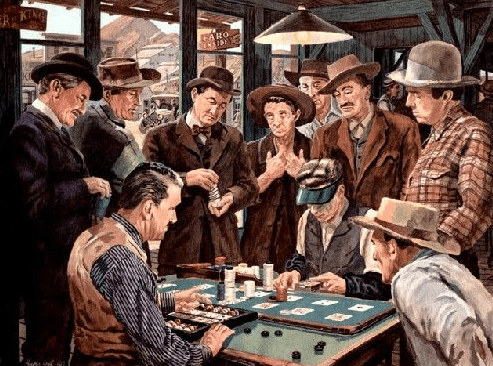Historical Gambling Journeys
Gambling has a rich and colorful history that stretches back thousands of years, encompassing various cultures and societies. From ancient civilizations to modern times, the allure of chance and fortune has captivated the human spirit, leading to the evolution of diverse gambling practices and traditions.

A Cultural Tapestry
Ancient Beginnings
The earliest evidence of gambling can be traced back to ancient China around 2300 BC, where rudimentary forms of games involving tiles were played. Similarly, dice made from bones have been discovered in ancient Mesopotamia, dating back to around 3000 BC. These early forms of gambling laid the groundwork for more sophisticated games that would emerge in later civilizations. These rudimentary games not only entertained but also provided a means for social interaction and cultural exchange. As civilizations progressed, the desire for games of chance grew, influencing various aspects of society. The use of tiles and dice in gambling demonstrated early human ingenuity and the quest for excitement and risk. Over time, these ancient practices evolved, leading to the rich tapestry of gambling traditions seen throughout history.

Gambling in Ancient Rome and Greece
In ancient Rome and Greece, gambling was a popular pastime among all social classes. The Greeks enjoyed a game called “astragali,” which involved throwing dice made from sheep bones. The Romans, on the other hand, were known for their love of betting on chariot races and gladiator battles. Gambling was so ingrained in Roman culture that emperors often regulated it, and dice games were even played during the height of the Roman Empire. Public gambling events became major social gatherings, drawing crowds and fostering a sense of community. Wealthy citizens often hosted lavish gambling parties, showcasing their status and indulging in the thrill of risk. The influence of Greek and Roman gambling traditions spread throughout the Mediterranean, leaving a lasting legacy. These ancient practices laid the foundation for many modern gambling games and the cultural significance they hold today.

The Middle Ages and the Rise of Card Games
During the Middle Ages, gambling continued to evolve, particularly with the introduction of card games. Playing cards are believed to have originated in China before spreading to the Islamic world and eventually reaching Europe in the 14th century. The introduction of cards brought about new forms of gambling, including games like poker and blackjack, which remain popular today. These card games quickly gained popularity among various social classes, from nobility to commoners, as they provided a portable and versatile form of entertainment. Medieval gambling houses and inns became common gathering places for card players, fostering a social environment centered around gaming. The strategic and psychological elements of card games also added a new dimension to gambling, appealing to those who enjoyed skill-based challenges. This period set the stage for the widespread acceptance and enjoyment of card games, influencing gambling culture for centuries to come.

The Birth of Modern Casinos
The 17th century saw the birth of the first modern casinos in Italy. The Ridotto, established in Venice in 1638, is considered the world’s first official gambling house. These early casinos were designed to provide a controlled environment for gambling activities, offering a variety of games such as baccarat, roulette, and dice. They quickly became fashionable venues for the elite, who gathered to enjoy the thrill of gambling in an elegant setting. The success of the Ridotto inspired the establishment of similar gambling houses across Europe, spreading the concept of regulated casino gaming. The rise of these establishments also marked the beginning of state intervention in gambling, with governments recognizing the potential for tax revenue. This era set the stage for the global proliferation of casinos, transforming gambling into a sophisticated and socially accepted pastime.

Gambling in America
Gambling has always had a significant presence in American history. From the early colonial lotteries used to fund public projects to the riverboat casinos of the 19th century, gambling has been a part of the American experience. The Gold Rush era of the mid-1800s brought about a surge in gambling activities, with saloons and gambling halls becoming common in frontier towns. As American society progressed, gambling continued to evolve, with the rise of horse racing tracks and the establishment of casinos in Nevada. The 20th century saw the proliferation of legal gambling in various forms, including state lotteries and Indian gaming establishments, reflecting the growing acceptance and regulation of the industry. The diverse landscape of American gambling reflects its deep-rooted presence and ongoing impact on the nation’s cultural and economic fabric.

The Las Vegas Revolution
The 20th century witnessed the transformation of Las Vegas into the gambling capital of the world. The legalization of gambling in Nevada in 1931 paved the way for the development of iconic casinos like the Flamingo, the Sands, and the Bellagio. Las Vegas became synonymous with glitz, glamour, and high-stakes gambling, attracting millions of visitors each year. The city’s vibrant nightlife and lavish entertainment options further solidified its reputation as a premier destination for those seeking both excitement and luxury. The construction of massive resort-casinos along the Las Vegas Strip, along with the influx of celebrity performances and extravagant shows, helped to establish the city as a global symbol of entertainment. This period of rapid expansion and innovation marked a new era for gambling, with Las Vegas at its forefront.

The Digital Age and Online Gambling
The advent of the internet in the late 20th century revolutionized the gambling industry once again. Online casinos and sports betting platforms emerged, allowing people to gamble from the comfort of their homes. The convenience and accessibility of online gambling have led to its rapid growth, making it a multi-billion dollar industry today. Technological advancements, such as mobile apps and live dealer games, have further enhanced the online gambling experience, offering immersive and interactive options for players. Online platforms also introduced new forms of gambling, including virtual sports and eSports betting, catering to a diverse audience. The rise of digital currencies and blockchain technology is expected to shape the future of online gambling, providing new opportunities for secure and transparent transactions. As online gambling continues to evolve, it remains at the forefront of the industry’s innovation and expansion.
Learning from History
Cultural Impact:
Discover how gambling has influenced economic policies, social norms, and entertainment across different periods. Throughout history, gambling has not only reflected but also shaped societal values and economic practices. From its role in ancient rituals to its influence on modern entertainment and leisure, gambling has had a profound impact on how societies interact with risk and reward. Economic policies have often been crafted in response to gambling’s financial implications, while social norms have evolved around the acceptance and regulation of gambling practices. By examining these influences, we gain a deeper understanding of how gambling has integrated into and shaped various cultural contexts over time.
Evolution of Laws:
Learn about the legal changes that have shaped gambling practices and their socioeconomic impacts. The regulation of gambling has evolved significantly, from ancient prohibitions and restrictions to the sophisticated legal frameworks governing modern gambling. These legal transformations have had substantial effects on the industry, influencing its structure, accessibility, and societal impact. Historical changes in gambling laws reflect broader shifts in societal attitudes towards risk and regulation, highlighting the ongoing balance between freedom and control in the gambling sector. Understanding these legal developments provides valuable insights into how gambling practices have been managed and their implications for society.
Why Visit This Page?
Ideal for historians, gambling enthusiasts, educators, and anyone interested in the socio-economic and cultural aspects of gambling, our feature provides a detailed look at how gambling has woven itself into the fabric of societies worldwide. This page offers a compelling blend of historical analysis and entertainment, perfect for those looking to explore the rich tapestry of gambling’s impact on civilizations across millennia. Embark on a journey through time to discover how gambling has evolved and influenced societies, and gain a deeper appreciation of its role in shaping cultural and economic landscapes. Explore our Historical Gambling Journeys for a unique and engaging perspective on the history of gambling.